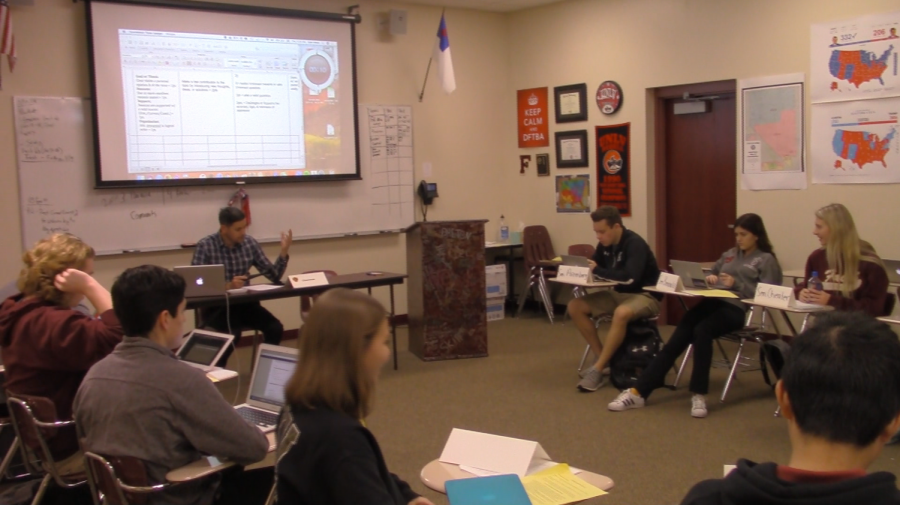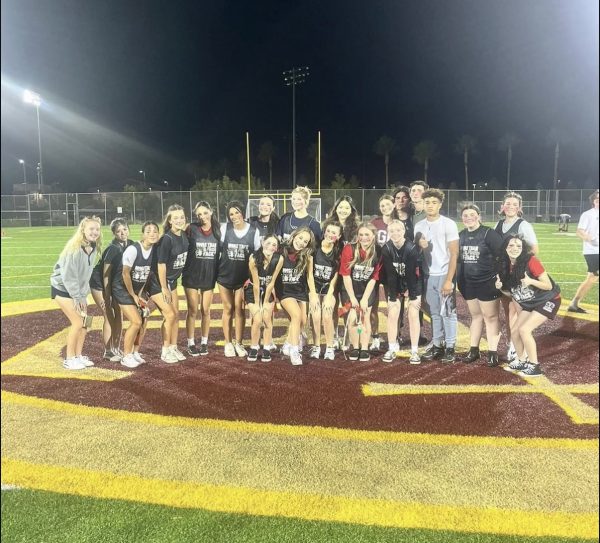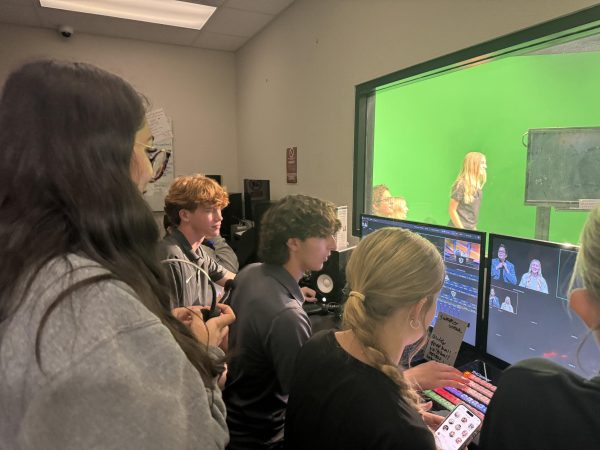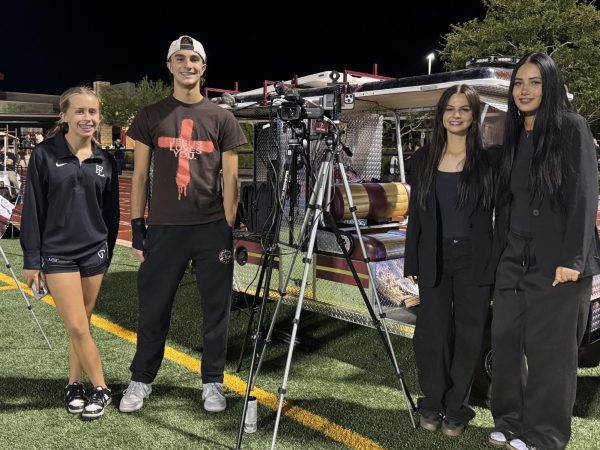Model Congress gives students a political voice
Advisor, Ryan Watts, leads his AP US Government class in a formal debate on a current issue in America
The recent development of Model Congress certainly has caught student’s attention, as it gives them an opportunity to voice their stories and opinions. This chance is monumental to seniors across campus because they are now eligible to discuss topics and events that occur outside the school, and get an insight into others’ personal views.
The idea and execution of forming Model Congress developed about 8 years ago and is still going strong to this day. It is intended to continue providing the option of doing it during the class, for many years to come.
The group will be instructed by Faith Lutheran’s government teachers, Mr. Best, Mr. Watts, Mr. Tonniges and class debates are being held now. Some of the topics that they will be discussing are abortion, raising the minimum wage, removing the luxury tax, gay rights, and more.
“I think it’s really scary… but it’s also really nice because I get to find my opinions and learn a way to argue them if that makes sense,” senior Camryn DeVore said. “Raising minimum wage has always been a controversial topic and has a lot of issues, and personally I think there’s nothing against raising minimum wages though some may argue that there are. But what I say is if the government can’t figure it out, why should a high school class be able to?”
“I feel that students should have a voice (and be allowed to voice their opinion) as long as there is respect for our mission here at Faith Lutheran. That is the reason that we keep “diplomacy” points when grading the debate participation. Students who purposefully disrespect the faith, or set out to just be argumentative.” said advisor,
Mr. Best.
The debate times are formally set at 20 minutes, and are split into two parts: structured debate and general debate. Structured debates there are two speakers in favor of the resolution, and two in the opposition of it. This contrasts to the general debates, which is when the floor is opened for one minute speeches that brings in new evidence or or addresses the evidence previously presented. When the debate is finished, the clerk/chairman takes a roll-call vote to determine if the final resolution is eligible to pass.












